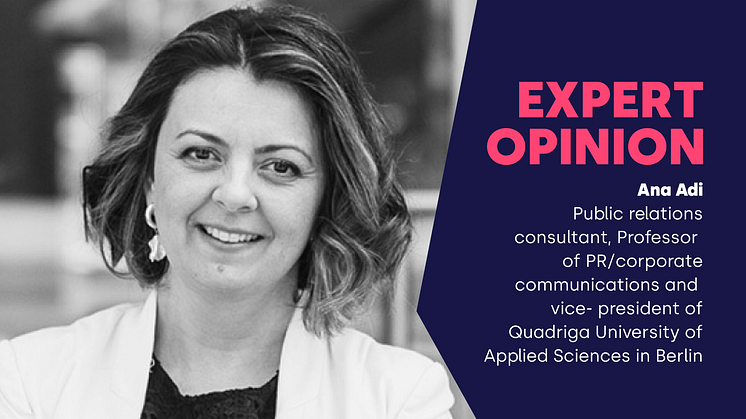
Blog post -
Strategic AND Ethical: The Responsible, Humble Persuader
In the field of Public Relations and communications, professionals are increasingly confronted with hypercomplex challenges that go beyond the traditional volatile, uncertain, complex, and ambiguous (VUCA) nature of modern issues. These challenges, such as the rapid changes in digital communication or crisis management during global events like the COVID-19 pandemic, intertwine so deeply that solving one problem often unveils several others. This complexity necessitates a critical reevaluation of the role of PR within organizations and the broader societal fabric.
The traditional tools and approaches that once guided our profession are becoming obsolete in the face of these layered complexities. Today, it is insufficient for PR practitioners to focus solely on immediate benefits for clients or employers; they must also consider the long-term ramifications of their work on a broader array of stakeholders. As we navigate this intricate web, the need for a responsible and reflective approach in PR has never been more critical. By transitioning from traditional advocacy to a role that prioritizes ethical persuasion and strategic foresight, PR professionals can better align their efforts with both organizational objectives and societal expectations.
The desire to practice a meaningful and impactful job is not new. Studies like “The Future of PR/Comms and their social impact” or “PR2025” are evidence of the changing expectations and perceptions of ideal practice among communicators. However, while change is desired, resistance to change remains – fear and/or comfort are the most likely culprits.
To adapt and thrive, PR professionals must be adept at both understanding and influencing business operations. Learning about business operations and strategic thinking enables communication practitioners to align their efforts with organizational goals. This shift from learning business to better communicate with management and clients to being able to identify and respond to stakeholder needs and demands is critical. This will also require redefining success and demonstrating impact—showing that something has changed and how.
For many companies in Europe, where the EU’s Corporate Sustainability Reporting Directive (CSRD) will soon apply, embracing these changes will become imperative. So, learning business to change business is the order of the day.
To support this transition, several changes are needed:
- Research is key: Whether embracing Macnamara’s “architecture for organizational listening” or simple data-driven decision making, a strong research foundation helps navigate through the clutter of offers, solutions, and information.
- Scenario testing: Essential for unearthing assumptions and exploring different perspectives. This approach helps recognize that different stakeholders might have varying views on the same issue but also understand that outcomes planned might not be universally desired or beneficial. (Generative AI can help here as a scenario testing environment)
- Break down silos: Fostering cross-departmental collaboration and communication is crucial. With CSRD, where stakeholder input needs to be included and reflected, this will be a must.
- Be humble and reflective: Making time for such thinking is crucial. This goes hand in hand with scenario planning but requires communication practitioners themselves to reflect on their own values, assumptions, and behaviors.
Implementing an ethics of humility in PR practice can profoundly shift current working practices by admitting limitations, valuing diverse stakeholder input, and promoting transparency. This humble yet proactive approach, I believe, will not only enhance the integrity of our profession but also contribute to more meaningful and effective public discourse.

